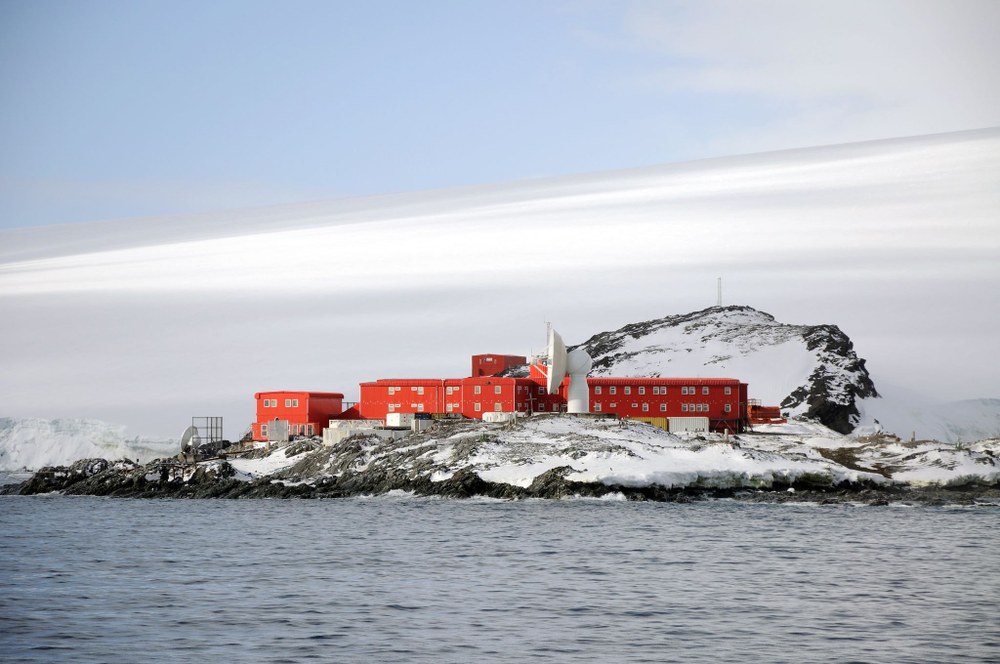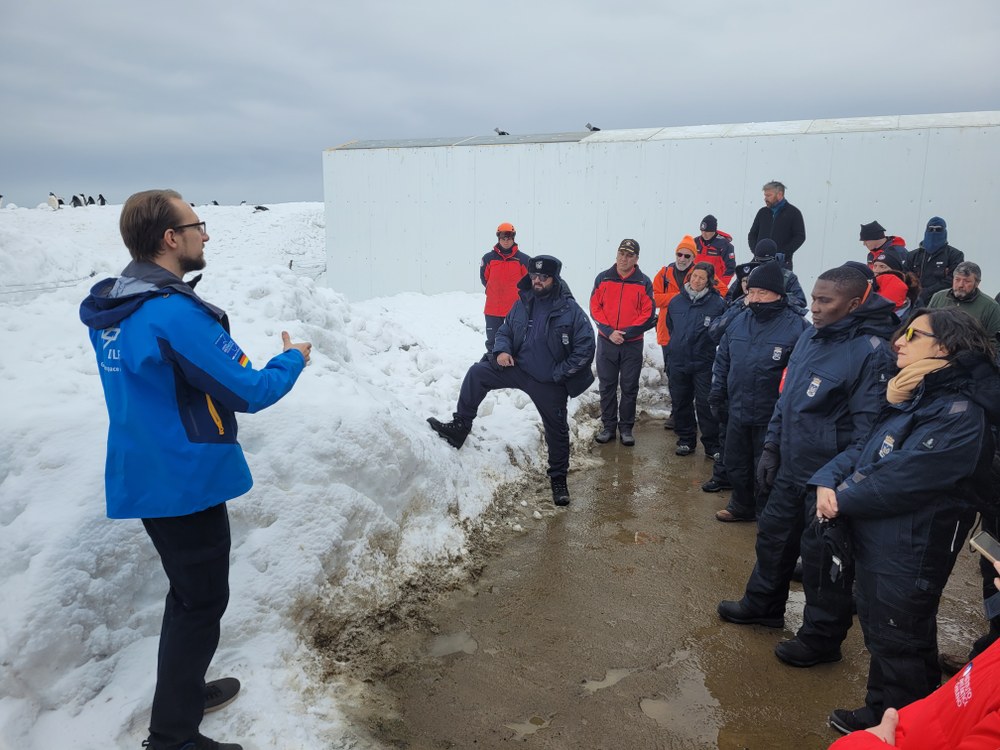UN secretary-general Guterres visits EOC Antarctic station
Before the United Nations Climate Change Conference COP28 in Dubai, UN secretary-general António Guterres visited the Antarctic together with the president of Chile, Gabriel Boric, and a high-ranking delegation. His visit brought him to the most extreme northeastern outskirts of the Antarctic Peninsula where Germany’s satellite receiving station GARS O’Higgins is located, near Chile’s Bernardo O’Higgins Station.

GARS O’Higgins is operated year-round by EOC staff. Here they receive satellite data using a 9 m antenna specifically constructed for use in the Antarctic. This location near the South Pole makes it possible to upload control commands to or download data from polar-orbiting satellites several times a day. Using the data collected here, EOC is able to monitor over decades, for example, the development of shelf ice regions. Their stability is a factor in determining the extent the Antarctic contributes to global sea level rise. Shelf ice acts like a brake shoe that controls glacier runoff into the ocean. Some of the data are immediately processed locally, namely the real-time products that provide information about the condition and distribution of sea ice cover. The radar images are available shortly after the satellite passes overhead and can be sent by mail to ships crossing Antarctic sea ice. These recordings provide highly precise information, also at night and in poor viewing conditions, that, for example, the German research ship “Polarstern” uses to navigate safely through the ice, in the process saving large quantities of fuel and reducing emissions.
DLR has operated GARS O’Higgins since 1991 together with the German Federal Agency for Cartography and Geodesy (BKG). BKG uses the antenna as part of a worldwide monitoring network to precisely measure tectonic plate movement. The station is currently being fundamentally reconditioned and some of the infrastructure is being renewed. This work will be concluded in 2025.

